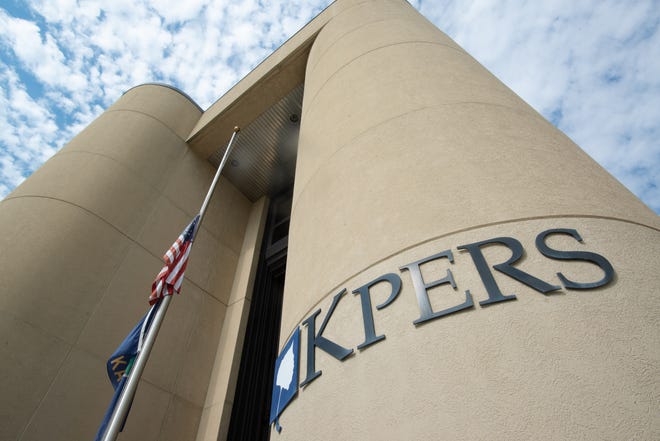
Kansas’ pension fund reported a small investment in the ill-fated cryptocurrency company FTX, a spokesperson for the Kansas Public Employee Retirement System said Monday.
The fund’s exposure, or investment, in FTX and its affiliated companies was $187,400, Kristen Basso, a KPERS spokesperson, said in an email. That accounts for 0.0008% of the pension fund’s total holdings as of the end of the 2022 fiscal year in July.
“There is no risk to the long-term stability of KPERS as a result of the FTX investment,” Basso said.
FTX, an international cryptocurrency exchange, and its affiliates filed for bankruptcy on Nov. 11 in one of the most high-profile casualties of the nascent cryptocurrency industry.
More:Woke investments or a nonissue? Where Kansas puts its money is increasingly in the spotlight.
It followed a week where there was effectively a bank run on FTX, with a spike of customers withdrawing their assets from FTX amid worries about the company’s stability and future financial prospects. The company then did not have enough assets to cover the rise in withdrawals.
Court filings Nov. 19 show FTX owes over $3 billion to its top 50 creditors and was reviewing its assets and preparing to sell or reorganize the company. The company had been one of the most prominent of its kind, enlisting celebrity backers, including Tom Brady and even sponsoring a sports arena in Miami.
Kansas is far from the only state pension fund to have been invested; pension systems in Washington state and Ontario also had investments in FTX, as did the Alaska Permanent Fund.
The Kansas City Star reported Nov. 18 that Missouri’s public employee pension fund lost over $1 million after investing in FTX via the prominent investment manager BlackRock.
While Kansas also uses BlackRock to manage some of its investments, Basso said the state’s investment in FTX did not come via that investment manager.
Where KPERS puts its money has become an increasingly hot topic in recent months.

More:Amid Ukraine conflict, KPERS board votes to halt future investments in Russia
The pension fund’s board voted to divest from its holdings in Russian assets in the wake of that country’s invasion of Ukraine earlier this year, though that also accounted for a small fraction of its total investments.
And some Republicans have been critical of the state’s relationship with BlackRock over the company’s policies in using environmental, social and governance to craft investment decisions, particularly in the oil and natural gas industries.



















